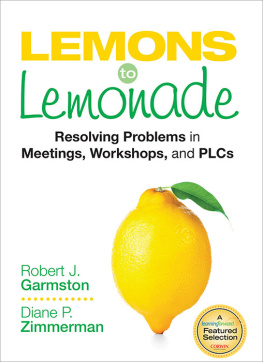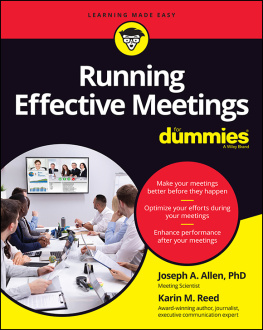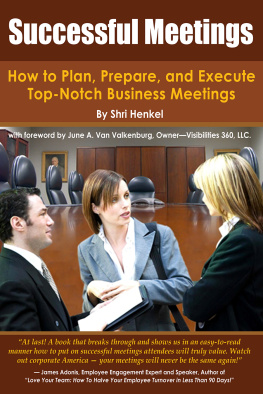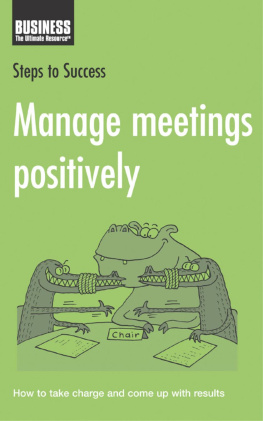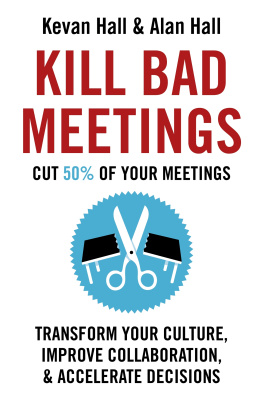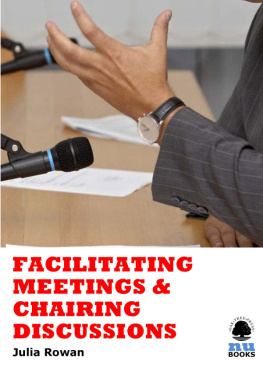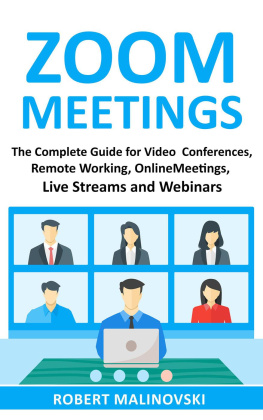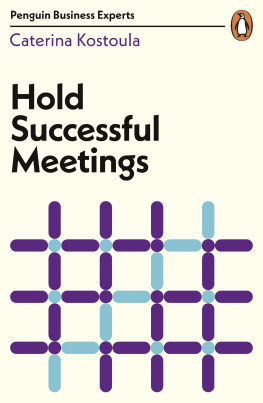

Copyright 2013 by Robert Garmston and Diane Zimmerman
All rights reserved. When forms and sample documents are included, their use is authorized only by educators, local school sites, and/or noncommercial or nonprofit entities that have purchased the book. Except for that usage, no part of this book may be reproduced or utilized in any form or by any means, electronic or mechanical, including photocopying, recording, or by any information storage and retrieval system, without permission in writing from the publisher.
Printed in the United States of America
A catalog record of this book is available from the Library of Congress.
ISBN 978-1-4522-6101-0
This book is printed on acid-free paper.
13 14 15 16 17 10 9 8 7 6 5 4 3 2 1

FOR INFORMATION:
Corwin
A SAGE Company
2455 Teller Road
Thousand Oaks, California 91320
(800) 233-9936
www.corwin.com
SAGE Publications Ltd.
1 Olivers Yard
55 City Road
London EC1Y 1SP
United Kingdom
SAGE Publications India Pvt. Ltd.
B 1/I 1 Mohan Cooperative Industrial Area
Mathura Road, New Delhi 110 044
India
SAGE Publications Asia-Pacific Pte. Ltd.
3 Church Street
#10-04 Samsung Hub
Singapore 049483
Acquisitions Editor: Arnis Burvikovs
Associate Editor: Desire A. Bartlett
Editorial Assistant: Mayan White
Project Editor: Amy Schroller
Copy Editor: Codi Bowman
Typesetter: C&M Digitals (P) Ltd.
Proofreader: Theresa Kay
Indexer: Sylvia Coates
Cover Designer: Candice Harman
Permissions Editor: Jennifer Barron
List of Figures and Illustrations

Publishers Acknowledgments

Corwin gratefully acknowledges the contributions of the following reviewers:
Dr. Patricia Conner
District Test Coordinator
Berryville Public Schools
Berryville, AR
Dr. John F. Eller
Author, Professor
St. Cloud State University
St. Cloud, MN
Sheila A. Eller
Author, Principal
Bel Air Elementary
New Brighton, MN
Robbi Schranz
Literacy Coach
Waupun Area School District
Waupun, WI
About the Authors


ROBERT J. GARMSTON, EdD, is an Emeritus Professor of Educational Administration at California State University, Sacramento, and Founder of Facilitation Associates located in Sacramento, California, and Cofounder of The Center for Cognitive Coaching and the Center for Adaptive Schools ( www.thinkingcollaborative ), both located in Denver, Colorado. Formerly a classroom teacher, principal, director of instruction, and acting superintendent, he works as an educational consultant specializing in leadership, learning, and personal and organizational development. He has made presentations and conducted workshops for teachers, administrators, and staff developers throughout the United States as well as in Canada, Africa, Asia, Australia, Europe, and the Middle East.
Bob has practiced meeting management in each of his leadership roles, and for thirty years, he has taught facilitation skills, presentation skills, and group management to educational leaders. He taught meeting management in Copenhagen to supervisors in the World Health Organization. He studied under Michael Doyle and David Strauss, cofounders of the Interaction Method of Conducting Meetings. In the 1980s, he formed a group in Northern California to study and refine facilitation techniques. For four years, he wrote a column on managing meetings from the perspectives of presenters and facilitators for the Journal of Staff Development, a publication of the National Staff Development Council, now Learning Forward.
Bob has written and coauthored a number of books including Cognitive Coaching: A Foundation for Renaissance Schools, How to Make Presentations That Teach and Transform, The Adaptive School: A Sourcebook for Collaborative Groups, A Presenters Fieldbook: A Practical Guide,Unlocking Group Potential for School Improvement, and a memoir, I Dont Do That Anymore: A Memoir of Awakening and Resilience. He has been recognized by NSDC for his contributions to staff development. His work has been translated into Arabic, Hebrew, Italian, and Spanish.
In addition to educational clients, he has worked with diverse groups including police officers, probation officers, court and justice systems, utilities districts, the United States Air Force, and the World Health Organization.

DIANE P. ZIMMERMAN, PhD, is a writer and consultant focusing on entrepreneurial learning and schools that make a difference. She obtained her PhD in Human and Organizational Development from the Fielding Graduate Institute. She recently retired as a superintendent of schools after a 36-year career in education that was rich in leadership, facilitation, and conflict management.
Trained originally as a speech therapist, Diane worked early in her career as a teacher, speech therapist, program manager, and assistant director of special education in Fairfield, California. She subsequently became a principal in Davis, California, and served consecutively in two schools more than 13 years before being promoted to assistant superintendent for personnel. In 2002, she began a nine-year journey as a superintendent of Old Adobe School Union School District, a small suburban elementary school district in Petaluma, California. She prides herself in moving the districts teachers from contentious union interactions to cooperative collaborations as productive, interest-based educators who collectively set the highest standards possible for their school district.
Diane has been active in professional development all of her career. While obtaining her administrative credential, Diane was assigned to Bob Garmston as her intern coach. This early career interaction turned in to a lifelong intellectual partnership, and Diane became an influential leader in the Cognitive Coaching consulting consortium founded by Bob Garmston and Art Costa.
Diane has taught in administrative training programs at several northern California universities, and over the past 20 years she has written and consulted in the areas of Cognitive Coaching, teacher supervision and evaluation, facilitation, stages of adult development, assessment of leadership skills, and constructivist leadership.
Leadership and mediation of conflict has always been a part of Dianes life. She was encouraged to assume leadership roles throughout her career, from early work supervising in a family restaurant business, to her first teaching job in a new special education program, through her years as a principal. Throughout her career, she has been involved in handling divergent opinions and mediating conflict. She gained a substantive reputation as the in-house expert in facilitation, and her staff valued her ability to create learning communities long before professional learning communities were popularized.
Next page
